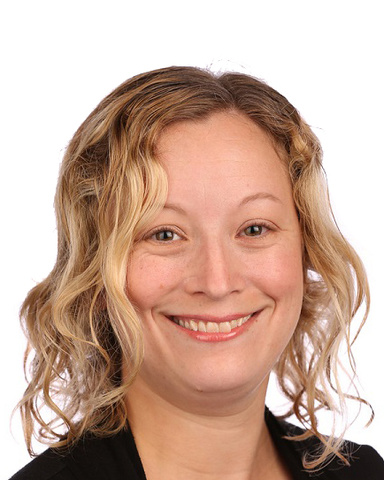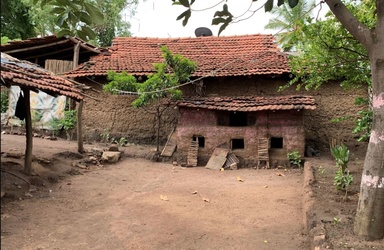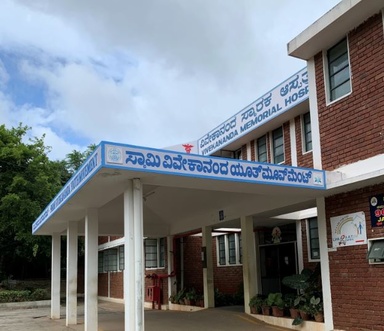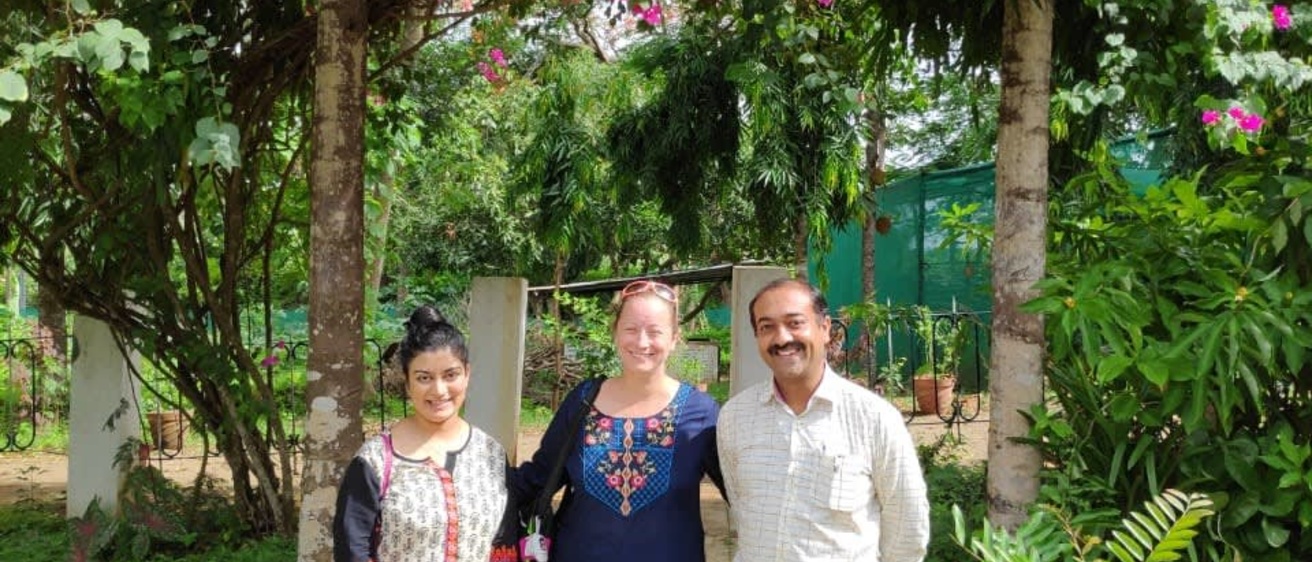Throughout pharmacy school, fourth-year student Eesha Patel has formed and deepened connections in Southern India. As she has helped learn from and improve healthcare there—through patient care, and research and other projects—she has grown in leaps and bounds.
When Patel was in her first year as a Doctor of Pharmacy (PharmD) student, she and others in her class got an email from Clinical Associate Professor and Director of International Student Activities Jeanine Abrons. A progressive nonprofit health organization based in Mysuru, India—the Swami Vivekananda Youth Movement (SVYM)—was looking for interns through a partnership of over 25 years with the University of Iowa and Global Health Studies Program.
“I got super excited,” Patel said. “The organization seemed perfect. … It seemed like what they did was big.” She reached out to Abrons—as did then-P2 Ashleigh Wallace-Lacey—and the two ended up securing grants to travel to India for eight weeks that summer to work with the organization.

After graduation, [Eesha will] be able to apply the global health concepts, and this cultural awareness and sensitivity to patients, to patients she’ll see in the emergency room or wherever she ends up practicing.”
This school year, she mentored and helped develop four undergraduate students who were doing the same internship program—through the UI Global Health Studies Program—and traveled back for five weeks with them and Abrons. As part of an Elective Academic Advanced Pharmacy Practice Experience (APPE), she researched the role of pharmacists in the country as well as how to expand pain and palliative care through SVYM. She also acted as a resource for the younger students.
In addition, she worked directly with Abrons—as part of her individualized coursework—on questions of how to best prepare future pharmacy students for experiences in India as well as other global experiences. Abrons, for her part, was in India last summer in her role as UI College of Pharmacy representative for the Global Health Steering Committee. The two also visited an Indian College of Pharmacy—Sarada Vilas College of Pharmacy—together.
“The first time Eesha went to India, I kept in touch with her over WhatsApp or Skype. I saw her academic growth,” Abrons said. “But this time, I was able actually to witness her working there. I could see her greater maturity and the connections that she had made to people and specific locations. Being there helped me see firsthand how highly motivated she is to make an impact.”

Patel spent the majority of her time in India in the tribal village of Sargur, which is home to an accessible, secondary care hospital system where she helped care for patients. She also spent time on a mobile health unit—a physician and pharmacy on wheels—that could reach remote areas. “Sometimes, we’d have to walk a half-mile or so, especially in the monsoon season when it was raining,” said Patel.
Her 2019 trip focused on teaching, pharmacy, and to learn about the country’s academic training system.
Patel’s major research project was to look into the roles of Indian pharmacists. There was a big difference between the care provided by a typical community pharmacist there—who often has less education than in the United States but can give medicine without a prescription; and the care through their SVYM-affiliated peers, she said.
“The pharmacists and physicians that worked through SVYM had a much different dynamic with patients,” Patel said. “The organization does an amazing job of delivering accessible healthcare to patients. It’s a great model for accessibility because a lot of people in India cannot afford healthcare. I am humbled to have had the chance to work with and learn from this institution that’s helping with accessibility, with education, and with awareness and healthcare.”
Aside from the challenges related to access to medications, people in India are more likely to distrust Western or allopathic medicine, Patel said. “There, many people try to do self-care and other modes of care first,” she added. “My views on healthcare changed after my experiences there because I realized it’s not just about the knowledge. It’s about providing the whole picture. It has to be accessible. It has to be understandable for the patient..”

“I learned what patient-centered care is firsthand.”
Abrons noted that that global experiences such as Eesha’s experience in India can provide the type of insight that is directly applicable to students to enhance the care students provide in the States.
“Whatever Eesha does after graduation, she will provide better care to her patients here for having had these experiences,” said Abrons. “She’ll be able to apply the global health concepts, and this cultural awareness and sensitivity to patients, to patients she’ll see in the emergency room or wherever she ends up practicing.”
Patel also taught professionals and community members CPR in India, after becoming certified here and inspired Abrons to become a certified CPR instructor as well.
